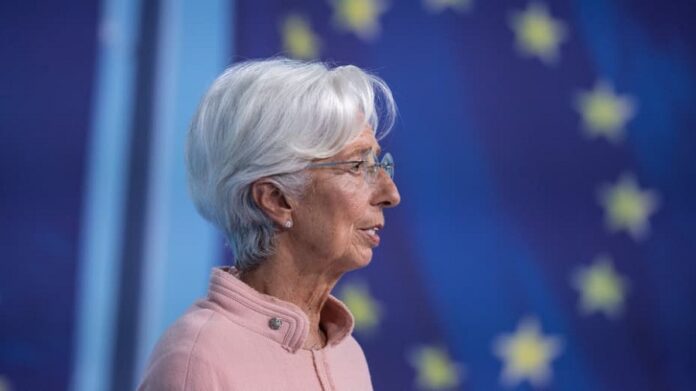The European Central Bank on Thursday increased interest rates for the first time in 11 years in an attempt to cool rampant inflation in the euro zone. The ECB, the central bank of the 19 nations that share the euro currency, surprised markets by pushing its benchmark rate up by 50 basis points, bringing its deposit rate to zero.
Markets had expected a smaller hike of 25 basis points, according to CNBC.
“The Governing Council judged that it is appropriate to take a larger first step on its policy rate normalisation path than signalled at its previous meeting,” the ECB said in a statement Thursday.
The Frankfurt institution had kept rates at historic lows, in negative territory since 2014, as it dealt with the region’s sovereign debt crisis and the coronavirus pandemic.
The ECB also said that this move in interest rates “will support the return of inflation to the Governing Council’s medium-term target by strengthening the anchoring of inflation expectations and by ensuring that demand conditions adjust to deliver its inflation target in the medium term.” The central bank’s inflation target is 2%.
The ECB had previously signaled it would be increasing rates in July and September as consumer prices keep surging, but it was unclear whether it would go as far as bringing rates back to zero. The ECB’s deposit rate is now 0%, the main refinancing operations rate is 0.5% and the marginal lending facility is at 0.75%.
Speaking after the decision was announced, ECB President Christine Lagarde described the justification for the larger hike, saying: “Inflation continues to be undesirably high and is expected to remain above our target for some time. The latest data indicate a slowdown in growth, clouding the outlook for the second half of 2022 and beyond.”
A first reading for inflation in June showed a record high of 8.6%. Lagarde said Thursday that “a prolongation of the war in Ukraine remains a source of significant downside risk to growth, especially if energy supplies from Russia were to be disrupted to such an extent that it led to rationing for firms and households.”
The European Commission, the executive arm of the EU, suggested Wednesday that EU nations should cut their gas consumption by at least 15% until March so they can better cope with fewer supplies from Russia this winter.


